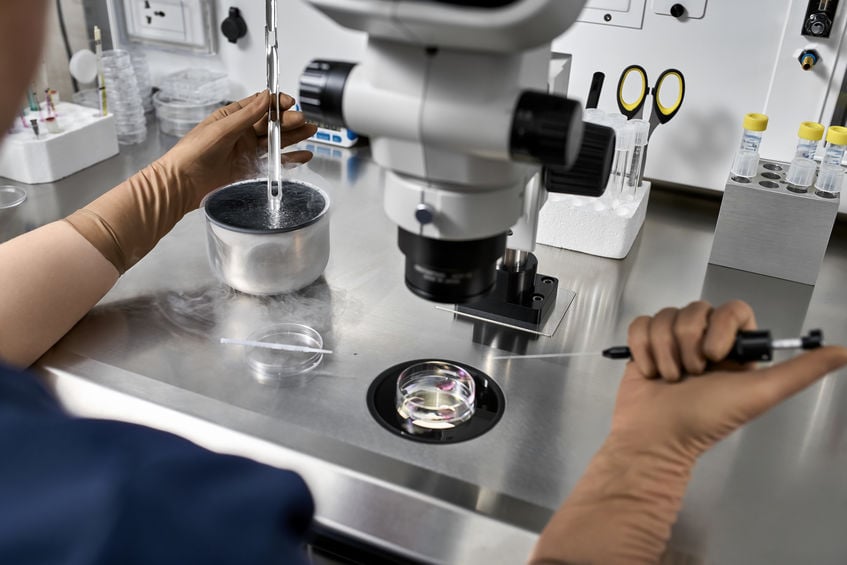Knowing When To Ask For Help
Trying to conceive (TTC) can be a nerve-wracking experience. Even though pop culture often gives the impression that getting pregnant is easy, the reality can be far different. Conception is a complex process that requires perfect timing and a healthy egg and sperm. Meanwhile, conceiving is only one step in a long nine-month journey that ultimately ends in a hopefully healthy baby being born. But for some people, the TTC period can be frustratingly long. So, how long is too long, and when should a couple seek professional fertility support?

Timing is age-dependent
As with many aspects of general health, determining when a woman or couple should schedule an appointment with a fertility specialist is often dependent upon age. And the timeline shortens as a woman or couple ages. Assuming no known underlying health conditions are present, conventional guidance recommends that couples age 35 and younger wait until a year of unsuccessful TTC before seeing a specialist. For women and couples age 35 and older, that timeline is shortened to six months.
But timing also depends on health concerns
In generally healthy people, the standard timelines are solely based on age. But for individuals with certain underlying conditions, speaking to a fertility specialist immediately after deciding to try for pregnancy may be a smarter option. For example, women with polycystic ovarian syndrome (PCOS) often have irregular periods. As a result, tracking ovulation can be more difficult. Working with a fertility specialist can aid in boosting ovulation or regulating menstruation. Similarly, individuals who underwent cancer treatments such as chemotherapy may also find that trying to get pregnant can be harder.
History of STIs
Likewise, a history of sexually transmitted infections (STIs) would also fast-track people for fertility support. STIs can be damaging for both men and women. Left untreated, infections can cause scarring on the fallopian tubes in women. In men, STIs can reduce sperm quality, quantity, and motility.
Previous difficulty conceiving
Meanwhile, women or couples that conceived previously but with difficulty are also candidates that should immediately seek professional assistance when trying again for future pregnancies. This category also includes women who previously miscarried.
When male infertility is suspected
While much of the conversation around fertility and when to see a specialist often focuses on women, male factors as the sole cause for not getting pregnant account for roughly up to a third of all infertility cases. Whether the problem is sperm quality or physical issues such as failing to achieve or maintain an erection, seeking help is an essential next step.
Working towards conception
For most couples that try to achieve pregnancy, TTC usually takes no more than a year. But for the other segment of hopefuls, conception can take longer or may require outside assistance. Infertility is a common issue that impacts 10%-15% of American couples. Healthy couples with no known underlying concerns should rely on the age-based guidelines for seeking help. Meanwhile, couples of all ages should seek fertility support immediately if there are health concerns or a previous history of miscarriages or complicated pregnancies.





